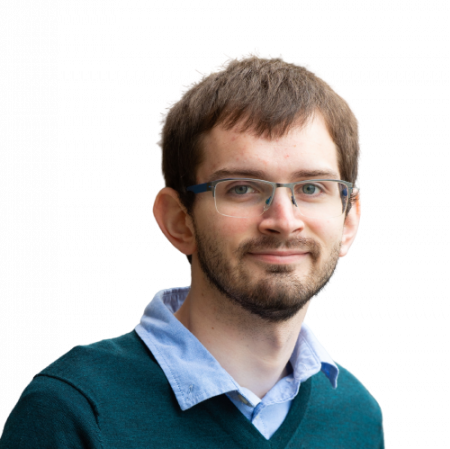
Dr Michael Hubbard
Space Radiation Environment Scientist
Biography
Michael received his PhD from the University of Surrey in 2020 where he studied pulse shape discrimination in plastic scintillator for applications in nuclear security. Following his PhD, he joined the Centre of Electronic Imaging (CEI) at the Open University as a Space Radiation Environment Scientist. At the CEI, Michael investigates the impact of the radiation environment for future space missions. He utilises the Geant4 toolkit to create simulations for various missions to simulate background radiation and dose damage for instruments. Michael is currently associated with the ATHENA, SMILE and THESEUS missions.
Research interests
- Radiation transport simulations
- Scintillation detector technologies
- Detection techniques and data analysis algorithms
- X-ray detection technologies
- Neutron detector technologies
- Muon tomography
- Radiation protection for Solar Cells
Projects
Solar Cell Radiation Modelling Knowledge Exchange Project - KTV Michael Hubbard
The main aim of this project is to transfer knowledge between The OU and Microlink to enable faster development of Microlink’s solar devices through better understanding of the radiation environment and aid the OU in translating its expertise in silicon detectors to solar cells, opening up new future funding avenues for both parties. One of the limiting factors in device performance and lifetime in the space environment is exposure to radiation. Understanding the different types of device damage and predicted performance limitation is crucial before hardware is tested or deployed and this is usually done initially by modelling. The radiation environment differs based on a spacecrafts orbital profile, therefore identifying the radiation sources of concern aids in qualification testing of future devices. The Open University has expertise in modelling radiation for CCD and CMOS detectors and will use this to develop understanding of radiation considerations for Microlink’s solar cells. Microlink has been working in the area of solar devices for many years and are now extending their reach into the space sector. As Microlink move into this area, they require more understanding of modelling and testing requirements and methods. This project directly addresses Microlink’s challenges in understanding the radiation environment for deployment of their novel solar devices.
Publications
Journal Article
The Soft X-ray Imager (SXI) on the SMILE Mission (2025)
SMILE Soft X-ray Imager (SXI) CCD370 proton irradiation results (2024)
Impact of particle passage and focusing from micro-pore optics for radiation damage estimates (2024)
SMILE soft X-ray Imager flight model CCD370 pre-flight device characterisation (2023)
Impact of impurities in shielding material on simulations of instrument background in space (2023)
The CCD instrument background of the SMILE SXI (2023)
The Soft X-ray Imager (SXI) on the SMILE Mission (2023)
Mitigating the effects of particle background on the Athena Wide Field Imager (2022)
Enhanced simulations on the Athena/Wide Field Imager instrumental background (2021)
Exploration of Fourier based algorithms and detector designs for pulse shape discrimination (2019)
Presentation / Conference
CMOS image sensors for x-ray interferometry (2024)
Calibrating and correcting charge transfer inefficiency in CCDs using Pyxel (2022)
Feasibility of using Micro Silica Bead TLDs for 3D dosimetry in brachytherapy (2019)
Presentation / Conference Contribution
Thesis
Light Transport Modelling Of Pulse Shape Discrimination Within Plastic Scintillators. (2020)